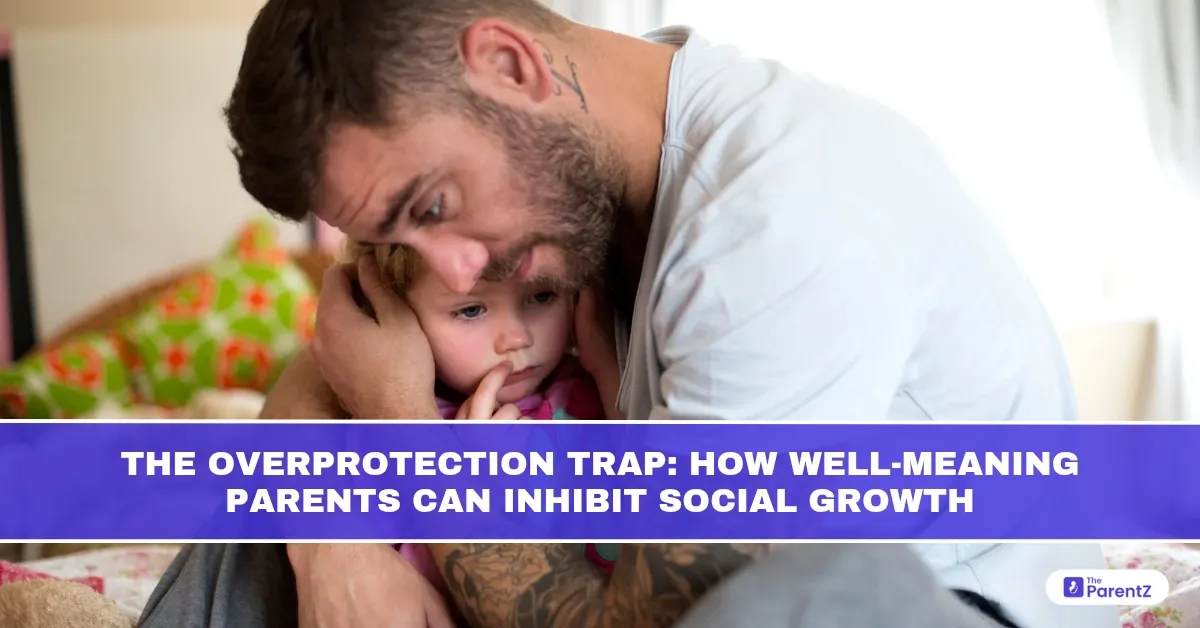You've probably been there before—watching your child approach something that might lead to a scraped knee, a hurt feeling, or a disappointment. Your heart races, and that protective instinct kicks in. Before you know it, you're stepping in, solving the problem, and making sure everything is okay. It comes from a place of love, but what if this well-intentioned protection is actually preventing your child from developing crucial life skills?
In today's world, where news alerts constantly highlight dangers and social media showcases carefully curated parenting, the pressure to protect our children has never been greater. Helicopter parenting, lawn mower parenting, bubble wrap parenting—whatever you call it, overprotection has become increasingly common. While the intention is to keep children safe and happy, the long-term effects can actually work against your child's development, particularly in the social realm.
The Hidden Costs of Overprotection
When parents consistently step in to solve problems, make decisions, or remove obstacles for their children, several things happen:
- Social confidence takes a hit: Children who aren't allowed to navigate social challenges independently often develop self-doubt about their abilities to handle relationships. This lack of confidence can follow them into adolescence and adulthood, making every new social situation feel overwhelming.
- Problem-solving skills remain underdeveloped: Social interactions are full of small conflicts and negotiations. When parents constantly mediate these situations, children miss valuable opportunities to develop conflict resolution strategies on their own.
- Anxiety increases rather than decreases: Somewhat counterintuitively, children who are overprotected often develop higher levels of anxiety. When parents communicate that the world is too dangerous for children to handle independently, children internalize this message and become fearful of new experiences.
- Independence is delayed: Many parents of young adults now find themselves still deeply involved in their children's college experiences, job searches, and even workplace issues. This extended dependence creates frustration for both generations.
- Resilience doesn't have a chance to grow: Perhaps most importantly, children need to experience small failures and disappointments to build resilience. Each time a child works through a difficult social situation—whether it's being left out at recess or navigating a disagreement with a friend—they're building emotional muscles that will serve them throughout life.
Signs You Might Be Overprotecting
Recognizing overprotection in your own parenting can be challenging because it stems from love and genuine concern. Here are some signs to watch for:
- You regularly speak to teachers, coaches, or other parents about issues your child could address themselves
- You find yourself saying "be careful" multiple times a day
- You rarely allow your child to experience age-appropriate risks
- You feel anxious when you're not able to monitor your child's activities
- You often complete tasks for your child that they could do independently, even if imperfectly
- You struggle to sleep or relax when your child is facing a challenge
Finding the Balance: Protection vs. Preparation
The goal isn't to swing completely to hands-off parenting. Rather, it's about finding that sweet spot where you provide a secure base while allowing your child to venture out and develop independence. Here's how to start shifting toward a more balanced approach:
- Step back and observe before jumping in: When you see your child in a challenging social situation, take a breath. Ask yourself: "Is this a situation where my child is unsafe, or is this an opportunity for growth?" Often, what feels urgent to address isn't actually harmful.
- Recognize the difference between discomfort and danger: Learning to tolerate discomfort is an essential life skill. Being left out of a game at recess feels terrible, but working through those feelings builds emotional strength.
- Coach rather than solve: When your child faces social challenges, resist the urge to contact the other parent or solve the problem. Instead, ask questions like, "What do you think you could say next time?" or "How might you handle this differently?"
- Allow natural consequences: If your child forgets their homework or speaks rudely to a friend, let the natural consequences unfold (within reason). These experiences are powerful teachers.
- Expand independence gradually: Look for age-appropriate opportunities to increase independence. This might mean walking to a friend's house alone, ordering their own food at a restaurant, or resolving a disagreement without parental mediation.
Conclusion
When you begin to loosen the protective reins, you'll likely notice changes, not all of them immediately positive. Your child might make mistakes, face disappointment, or even blame you for not stepping in. But over time, something beautiful happens: they develop confidence in their ability to navigate the world.
The preschooler who learns to ask another child to play becomes the teenager who can advocate for themselves with teachers. The elementary student who works through a friendship conflict becomes the young adult who can handle workplace relationships effectively.
And perhaps most importantly, your relationship with your child transforms. Rather than being the constant problem-solver and protector, you become a trusted advisor and supporter—a role that's not only more sustainable for you but also more beneficial for your child in the long run.





Be the first one to comment on this story.